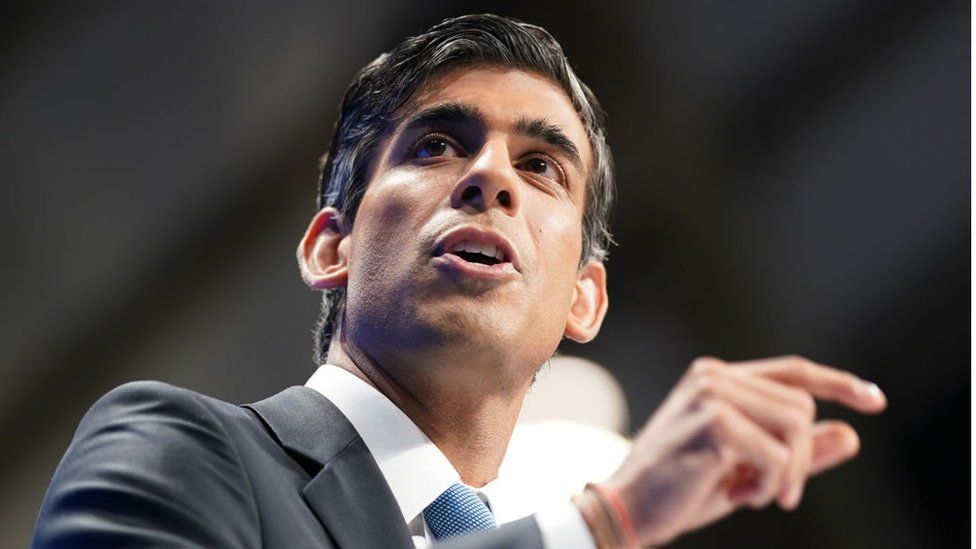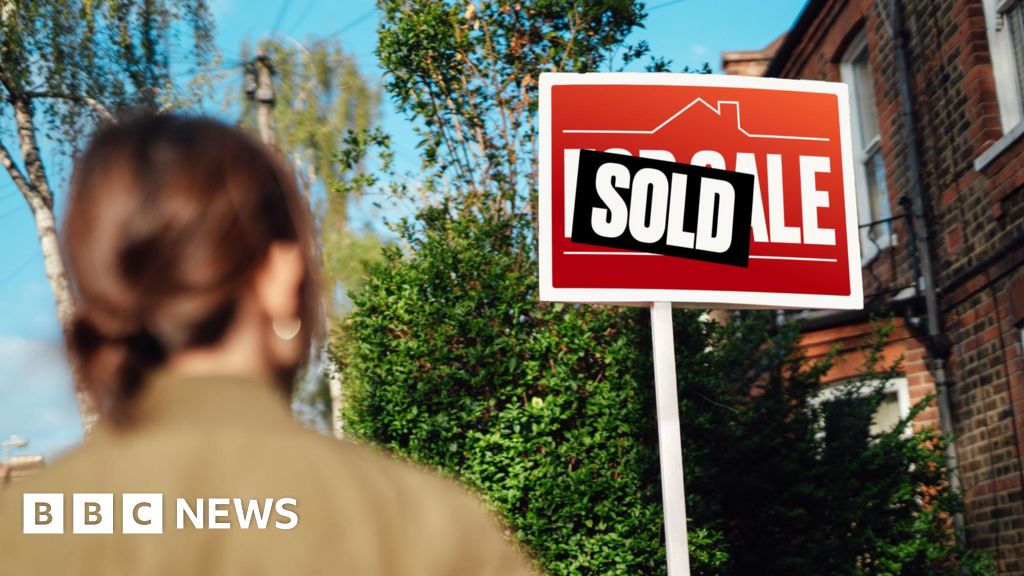ARTICLE AD BOX
By Tom Espiner & Lucy Hooker
Business reporters, BBC News
 Image source, Getty Images
Image source, Getty Images
Rishi Sunak steered the UK economy during the coronavirus pandemic, and has been widely referred to as a "possible future prime minister".
After the resignation of Boris Johnson, now he has his chance to go for that powerful position.
Mr Sunak became chancellor in February 2020, and within weeks found himself tackling the greatest challenge to face any chancellor since World War Two: steering the UK economy as the pandemic and its lockdowns began.
For quite a few people, this teetotal millennial - he had his 40th birthday during the first lockdown - appeared to be a reassuringly steady hand at the tiller.
When he pledged to do "whatever it takes" to help people through the pandemic in the spring of 2020 - and unveiled support worth £350bn - his personal poll ratings went through the roof.
But the UK has continued to be buffeted by stormy economic weather, and Mr Sunak himself has had to deal with the fallout of being fined by police, alongside Boris Johnson, for breaking lockdown rules in Downing Street in June 2020.
In April this year, some Conservative critics questioned whether the millionaire had grasped the scale of the cost of living squeeze facing struggling households.
In that month, the finances of Mr Sunak and his family came under intense scrutiny, with the tax affairs of his heiress wife Akshata Murty placed in the spotlight.
She later announced she would start paying UK tax on her overseas earnings to relieve political pressure on her husband.
Labour posed a number of questions about his finances, including: Has Mr Sunak ever benefited from the use of tax havens?
The Independent suggested he had, with a report claiming he was listed as a beneficiary of tax haven trusts in the British Virgin Islands and Cayman Islands in 2020. A spokesperson for Mr Sunak said they "did not recognise" the claims.
So what do we know about Rishi Sunak?
Rishi's rise
Mr Sunak's parents came to the UK from east Africa and are both of Indian origin.
He was born in Southampton in 1980, where his father was a GP, and his mother ran her own pharmacy.
Mr Sunak has said he admired his father's dedication to serving the community. Helping his mother in her independent pharmacy gave him his first lessons in business.
He attended the exclusive private school Winchester College - and worked as a waiter at a curry house in Southampton during his summer holidays - then went on to Oxford to study Philosophy, Politics and Economics.
While studying for an MBA at Stanford University he met his wife Akshata Murthy, the daughter of Narayana Murthy, Indian billionaire and co-founder of IT services giant Infosys. The couple have two daughters.
From 2001 to 2004, Mr Sunak was an analyst for the investment bank, Goldman Sachs, and was later a partner in two hedge funds.
He is thought to be one of the richest MPs.
According to The Times, he was a "multimillionaire in his mid-twenties", but he has not commented publicly on how much he is worth.
Rishi Sunak encouraged the British public to 'Eat Out to Help Out' during the Covid pandemic, a government campaign to help hospitality firms that was later linked to a spike in infections
Since 2015 he has been the Conservative MP for Richmond in Yorkshire and he lives in Kirby Sigston, just outside the town of Northallerton.
He became a junior minister in former prime minister Theresa May's government.
He was then made chief secretary to the Treasury by her successor, Boris Johnson, before being promoted to chancellor in February 2020.
Mr Sunak was a vocal supporter of Mr Johnson at first, but resigned this week saying he felt his approach to the economy was "fundamentally too different" to that of Mr Johnson.
Mr Sunak campaigned enthusiastically for Leave in the EU referendum, telling the Yorkshire Post he believed it would make Britain 'freer, fairer and more prosperous'.
He argued UK business was "stifled" by red tape from Brussels, but he was optimistic that post-Brexit a free trade deal with the EU could be agreed.
He said changing immigration rules was another key reason for his Leave vote: "I believe that appropriate immigration can benefit our country. But we must have control of our borders."
Image source, HM Treasury
He voted for Theresa May's Brexit deal on all three occasions that it was put to parliament, but was also an early supporter of Boris Johnson, for which he was rewarded in July 2019 with a promotion from local government minister to chief secretary to the Treasury.
In February 2020 Sajid Javid quit as chancellor following a power struggle with Number 10, and Mr Sunak stepped into his shoes.
'Identity matters'
Like Mr Javid, Mr Sunak belongs to a generation born in the UK but with origins elsewhere, and he says this identity matters to him.
"My parents emigrated here, so you've got this generation of people who are born here, their parents were not born here, and they've come to this country to make a life," he said in an interview with the BBC in 2019.
"In terms of cultural upbringing, I'd be at the temple at the weekend - I'm a Hindu - but I'd also be at [Southampton Football Club] the Saints game as well on a Saturday - you do everything, you do both."
In the interview he said he had been fortunate not to have endured a lot of racism growing up, but that there was one incident that had stayed with him.
"I was just out with my younger brother and younger sister, and I think, probably pretty young, I was probably a mid-teenager, and we were out at a fast food restaurant and I was just looking after them. There were people sitting nearby, it was the first time I'd experienced it, just saying some very unpleasant things. The 'P' word."
"And it stung. I still remember it. It seared in my memory. You can be insulted in many different ways."
However, he said he "can't conceive of that happening today" in the UK.

 2 years ago
38
2 years ago
38








 English (US) ·
English (US) ·